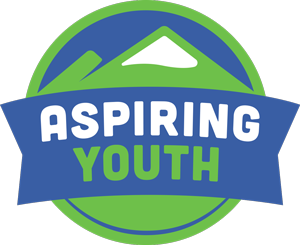One of the questions I’m freq uently asked by our young clients and their parents is, “What other resources are out there for [insert their concern here]?” I chuckle at how obvious a topic this can be, especially for our blog, but seeking out other resources can be helpful.
uently asked by our young clients and their parents is, “What other resources are out there for [insert their concern here]?” I chuckle at how obvious a topic this can be, especially for our blog, but seeking out other resources can be helpful.
First and foremost: if you have any psychological concerns, of course seek out a mental health professional. If you are looking for social skills coaching, Aspiring Youth is a great resource.
What exists as easy-to-access, supplementary resources for adolescents, young adults and their parents? There are many, but let’s take a look at a few I like and, in some cases, personally use.
How to ADHD
Jessica McCabe is a Los Angeles actress who, as an adult, received a diagnosis of  ADHD. She researched what that means, the likely effects on her life and how to overcome it, resulting in her very engaging YouTube series: How to ADHD. She is not a clinician, nevertheless her insights are well-informed. This includes tips for living with and overcoming some of the challenges of ADHD and other diagnoses.
ADHD. She researched what that means, the likely effects on her life and how to overcome it, resulting in her very engaging YouTube series: How to ADHD. She is not a clinician, nevertheless her insights are well-informed. This includes tips for living with and overcoming some of the challenges of ADHD and other diagnoses.
Autism sensory simulators
Many who have a diagnosis on the autism spectrum experience sensations very idiosyncratically: some are sensitive to touch, some to lights or sounds and, for others, smell is overwhelming. For those with more neurotypical development, these challenges are difficult to imagine. Thankfully, some wonderful online simulations can illustrate these experiences, often created by someone with an autism spectrum diagnosis. Mashable collected five great representations of these.
Apps for to-do lists
For some (and I’m squarely in this camp), doing routine tasks is a serious challenge. “I’ll do it later,” really translates to, “I fully intend on doing it, and I’ll do it when – oh! I love this song! Did you know that the composer was inspired by – wait. What was I saying?”
Different apps exist for making tasks more enjoyable, or at least memorable. Habitica (my favorite) truly gamifies to-do lists and daily tasks. In this role playing game (RPG), your character gains experience points and levels for completing tasks and takes damage for tasks left unfinished. With group challenges, quests, and bosses – plus an extremely supportive forum community– Habitica provides an opportunity for me to monitor my lists and check off items as I complete them. Oh, and it’s also free to play!
Mindfulness
Mindfulness is a big deal in the psychology world. My colleagues and I use it within a variety of situations. I checked out Headspace, and the feedback I’ve received from clients has been overwhelmingly positive. The program gently guides you in different mindfulness modules, all in 10-minute portions. While it’s a paid app (with a free trial), I think it’s worth it.
Dating
I have written about this topic previously because it is so important and comes up often with adolescents and young adults. Advice on the internet ranges from laughable to outright scary and misogynistic. I’ve said this before, but it bears repeating: don’t visit websites by people in the pickup artist (PUA) or seduction community. Their advice often relies on negating consent or assuming that one person is owed affection and/or a date, and your curious visit nabs them more site traffic and subsequent income.
My favorite resource in the dating domain is Dr. NerdLove, as he provides straightforward advice recognizing that girlfriends/boyfriends are not titles or prizes, but actual people with different needs and autonomy. Geek’s Dream Girl is another resource that offers solid, concrete advice from a woman’s perspective. While it’s no longer updated (though there are hints at its impending resurrection), the info is still there and accessible.
Hopefully, these suggestions give you a start. As I said, there are many resources out there that can be used in conjunction with social skills coaching.
What are your favorites? Feel free to comment below with your suggestions for online resources.
 R. Boccamazzo, PsyD, LMHCA
R. Boccamazzo, PsyD, LMHCA
Dr. Boccamazzo is a doctor of clinical psychology and social skills coach with Aspiring Youth. In addition, he is the clinical director of TakeThis.org, a national nonprofit focused on mental health and the gamer community, runs a private psychology practice in Bellevue offering individual therapy and psychological assessment to adolescents and adults, and provides parent and clinician trainings on technology in psychology. Much of his work focuses on high functioning autism, problematic technology usage, social anxiety, trauma and games. In his spare time, he enjoys acting, cooking, board games and video games.


Leave A Comment
You must be logged in to post a comment.